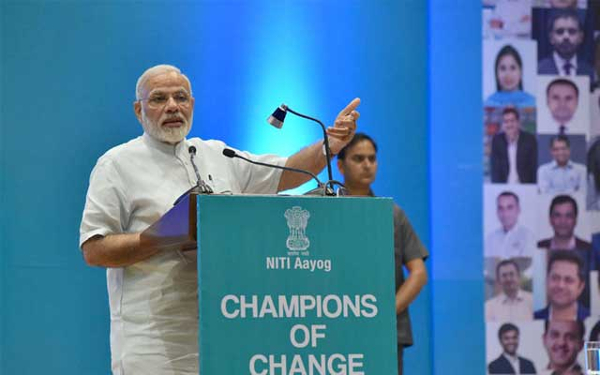NEW DELHI : As part of India’s strategy to combat climate change, one crore smart LED (light-emitting diode) streetlights have been commissioned across the country, thereby helping avoid 1,119.40 megawatt (MW) of peak electricity demand.
Under the world’s largest streetlight replacement programme being implemented by state-owned Energy Efficiency Services Ltd (EESL), these streetlights are illuminating 2.7 lakh km of roads, resulting in annual energy savings of 6.71 billion kilowatt hours (kWh) and helping reduce 4.63 million tons of carbon dioxide emission.
In an attempt to get urban local bodies on board, it is EESL that makes the entire upfront investment in installing these street lights. Given the revenue model, the municipalities pays EESL from the savings accrued on account of energy efficiency over the seven year contract period that guarantees a minimum energy saving of 50%.
“It is a phenomenal achievement,” Saurabh Kumar, Managing Director of EESL told Mint.
India is now the biggest emitter of greenhouse gases after the US and China, and is among countries most vulnerable to climate change. India plans to reduce its carbon footprint by 33-35% from its 2005 levels by 2030, as part of its commitments to the United Nations Framework Convention on Climate Change adopted by 195 countries in Paris in 2015.
The Street Lighting National Programme (SLNP) was launched by Prime Minister Narendra Modi in January 2015, aims to replace 1.34 crore conventional street lights by March, 2019. The National Democratic Alliance (NDA) government is making a strong case urban local bodies such as municipal corporations deliver better services in the backdrop of rapid urbanization.
“Under SLNP, Andhra Pradesh is leading the way amongst the states, with an installation of 28.9 lakhs LED streetlights followed by Rajasthan and Uttar Pradesh with 10.3 Lakhs and 9.3 lakhs respectively. As on date, 1,502 Urban Local Bodies (ULBs) across India have been enrolled under the programme and out of these ULBs, work has been completed in around 900 Urban Local Bodies,” EESL said in a statement.
India’s embrace of energy efficiency measures is perhaps best reflected in its programme to expand the use of LED (light-emitting diode) bulbs. The government’s UJALA (Unnat Jyoti by Affordable Lighting for All) scheme help cut LED bulb prices. This gave India’s efforts to cut energy use a shot in the arm, and helped dissipate doubts over the country’s ability to run the world’s largest energy efficiency programmes.
“India is a country which does things when it decides to do things…We are creating a new country. A country which is confident. We are building a new identity for ourselves,” said power minister Raj Kumar Singh on Tuesday.
India’s energy efficiency market is estimated at $23 billion with a vast potential to grow. The government is working towards giving appropriate price signals for achieving demand- side response. This ranges from perform, achieve and trade (PAT) programme, a market-based energy efficiency trading mechanism for moving towards cleaner cooking fuels. Other measures in the works include redefining India’s mobility architecture through EVs, improving energy efficiency of electrical appliances, motors, agricultural pumps and tractors, and even buildings.
“By March 2020, SLNP aims to replace 1.34 crore conventional streetlights in India with smart LEDs. This ambitious goal will make a tremendous difference, enabling peak demand reduction of about 1500 MW, annual energy savings of 9 billion kWh, and reduction in 6.2 Million tons of CO2 per year. EESL has an ambitious plan in this portfolio for next 4-5 years where it intends to bring investment to the tune of Rs8000 crore by 2024 by covering entire Rural India. It is expected that more than 30 million LED streetlights would be retrofitted/installed by EESL,” the statement added.
Source: LM
Image Courtesy: IndiaBlooms
You may also like
-
Trade Connect E-platform For Exports Is Single Window, Fast, Accessible And Transformational: Shri Piyush Goyal
-
Dot Simplifies Approval Processes For Telecom Licenses And Wireless Equipment
-
Coal Production and Supply Trends on Positive Trajectory
-
Union Minister To Release Booklets On Promotion Of Indigenous Species & Conservation Of States Fishes
-
2nd India-Japan Finance Dialogue held in Tokyo on 6th September, 2024
